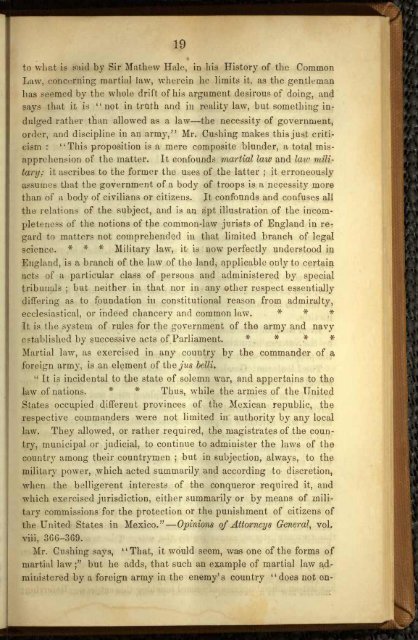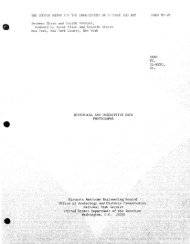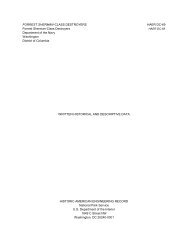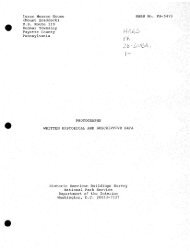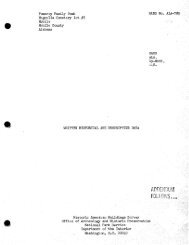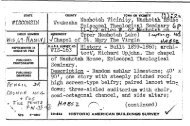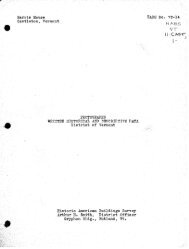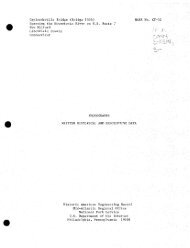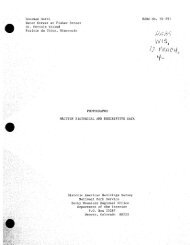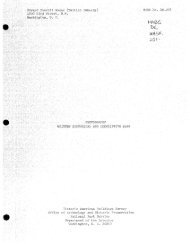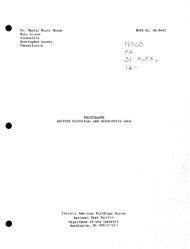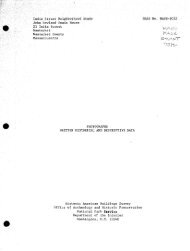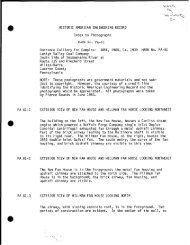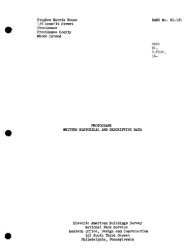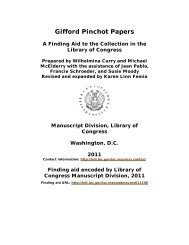Abraham Lincoln - American Memory
Abraham Lincoln - American Memory
Abraham Lincoln - American Memory
You also want an ePaper? Increase the reach of your titles
YUMPU automatically turns print PDFs into web optimized ePapers that Google loves.
19<br />
to what is said by Sir Mathew Hale, in his History of the Common<br />
Law, concerning martial law, wherein he limits it, as the gentleman<br />
has seemed by the whole drift of his argument desirous of doing, and<br />
says that it is "not in truth and in reality law, but something in-<br />
dulged rather than allowed as a law—the necessity of government,<br />
order, and discipline in an army," Mr. Cushing makes this just criti-<br />
cism : "This proposition is a mere composite blunder, a total mis-<br />
apprehension of the matter. It confounds martial law and law mili-<br />
tary: it ascribes to the former the uses of the latter ; it erroneously<br />
assumes that the government of a body of troops is a necessity more<br />
than of a body of civilians or citizens. It confounds and confuses all<br />
the relations of the subject, and is an apt illustration of the incom-<br />
pleteness of the notions of the common-law jurists of England in re-<br />
gard to matters not comprehended in that limited branch of legal<br />
science. * * * Military law, it is now perfectly understood in<br />
England, is a branch of the law of the land, applicable only to certain<br />
acts of a particular class of persons and administered by special<br />
tribunals ; but neither in that nor in any other respect essentially<br />
differing as to foundation in constitutional reason from admiralty,<br />
ecclesiastical, or indeed chancery and common law. * * *<br />
It is the system of rules for the government of the army and navy<br />
established by successive acts of Parliament. * * * *<br />
Martial law, as exercised in any country by the commander of a<br />
foreign army, is an element of the jus belli.<br />
" It is incidental to the state of solemn war, and appertains to the<br />
law of nations. Thus, while the armies of the United<br />
States occupied different provinces of the Mexican republic, the<br />
respective commanders were not limited in authority by any local<br />
law. They allowed, or rather required, the magistrates of the coun-<br />
try, municipal or judicial, to continue to administer the laws of the<br />
country among their countrymen ; but in subjection, always, to the<br />
military power, which acted summarily and according to discretion,<br />
when the belligerent interests of the conqueror required it, and<br />
which exercised jurisdiction, either summarily or by means of mili-<br />
tary commissions for the protection or the punishment of citizens of<br />
the United States in Mexico."—Opinions of Attorneys General, vol.<br />
viii, 3G6-369.<br />
Mr. Cushing says, "That, it would seem, was one of the forms of<br />
martial law f but he adds, that such an example of martial law ad-<br />
ministered by a foreign army in the enemy's country "does not en-


